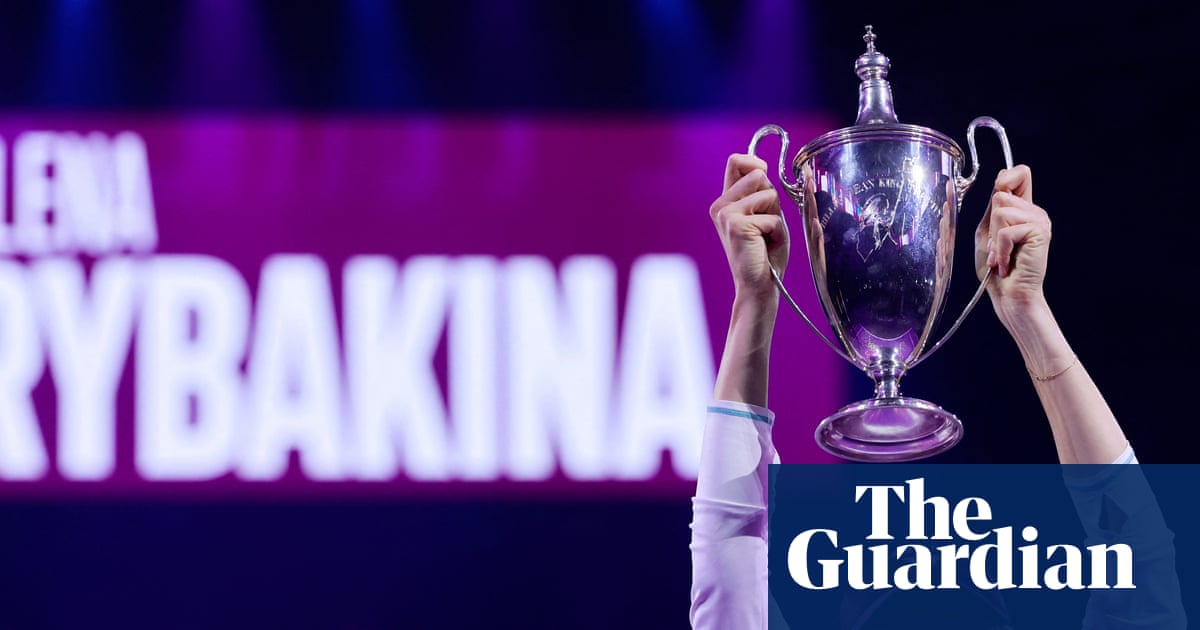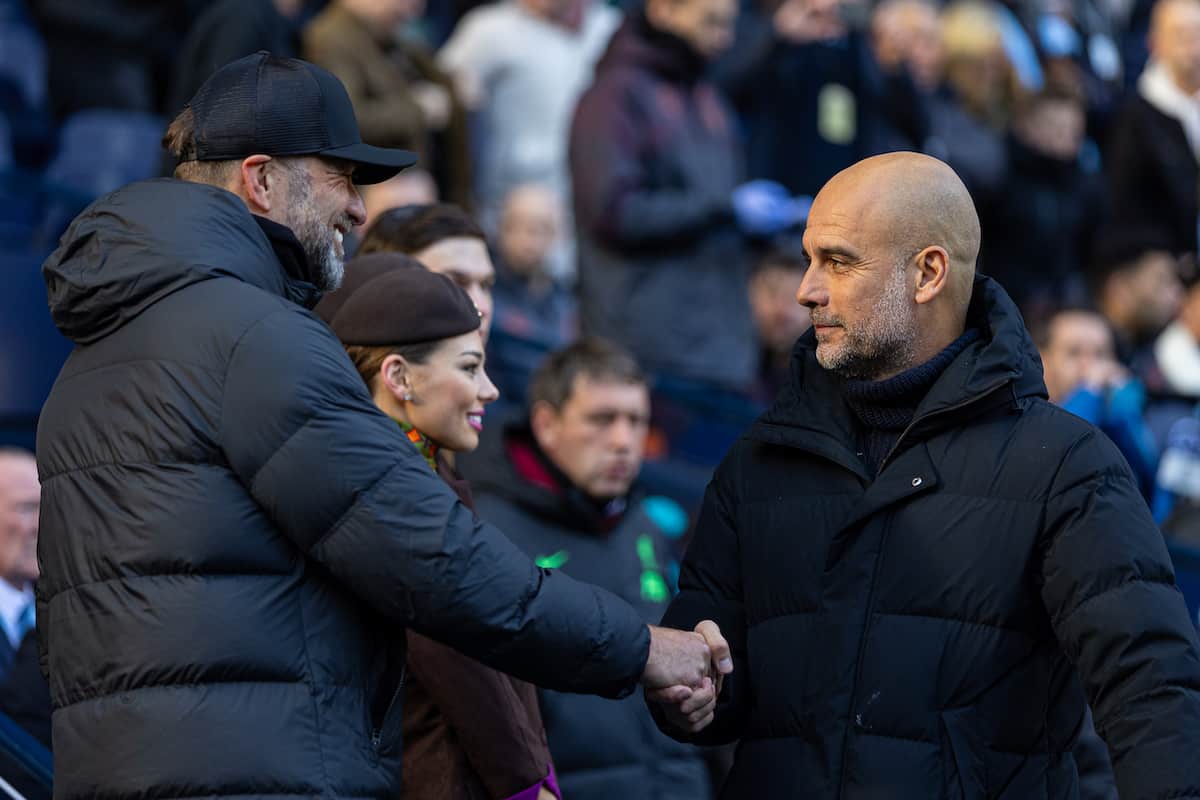Elena Rybakina and Aryna Sabalenka will meet in WTA Tour Finals duel for supremacy

RIYADH, Saudi Arabia – As the last match of the WTA Tour season approaches, Elena Rybakina is the most in-form tennis player on the planet. She fired 15 aces Friday night against American Jessica Pegula, to earn a spot in the final of the season-ending WTA Tour Finals, a tournament for only the eight best players of the year.Through the first half of the season, Rybakina played her tennis against the turbulent backdrop of an investigation into her coach, Stefano Vukov.January 1, Rybakina announced that Vukov would rejoin her team, after she fired him during the 2024 U.S. Open. But Vukov was barred from obtaining WTA credentials and from attending events, while under investigation for breaching the organization’s code of conduct.By February, the WTA Tour had suspended Vukov for one year, with chief executive Portia Archer writing in a confidential summary of the investigation, obtained by The Athletic, that Vukov had violated the code of conduct by: “Engaging in abuse of authority and abusive conduct towards the WTA Player, including compromising or attempting to compromise the psychological, physical or emotional well-being of the Player; engaging in physical and verbal abuse of the Player; and, exploiting your relationship with the Player for further personal and/or business interests at the expense of the best interest of the Player.”During the investigation, Rybakina publicly maintained that Vukov had “never mistreated her,” and the coach appealed the suspension ahead of this year’s French Open. It was lifted in August, after Vukov and the WTA entered into private arbitration.His violations included refusing to leave Rybakina’s New York hotel in 2024 after a representative for the player told him he had been fired. Vukov flooded Rybakina’s phone with text messages and more than 100 calls — according to sources with personal and professional relationships with Rybakina who were present at the hotel — as he sought another chance to convince Rybakina that her tennis career could not thrive without him.“Definitely never abused anyone,” Vukov wrote in a text message sent to The Athletic in January. Vukov was traveling with Rybakina for much of the season. He was barred from being credentialed at a tournament, and he was prohibited from being in any player areas with her, including on practice courts.Rybakina, a native Russian who represents Kazakhstan, spoke of struggling to sleep through late 2024 and early 2025. Her play and her health suffered, with multiple earlier-than-usual losses at big tournaments. Once considered part of a new women’s “big three” along Aryna Sabalenka and Iga Świątek, Rybakina’s ranking slipped into the double digits.Rybakina only qualified two weeks ago and was the No. 7 seed coming in to the tournament in Riyadh. Given her play the past few weeks, as she won six matches in a row to qualify and then four at the tournament itself, perhaps she should have been the favorite. The shaky, inconsistent player from the start of the year is a distant memory.In her place, even with a balky shoulder, is the smooth-hitting, big-serving 2022 Wimbledon champion. She wasn’t perfect Friday night against Pegula, losing her second set of the tournament, but she found the edges of the court on enough of those hard, low, flat, whipping groundstrokes to prevail 4-6, 6-4, 6-3. Pegula looked to be exerting the tactical pressure she used to win the first set midway through the third, but a dead net cord at 3-4, 40-15 on the American’s serve seemed to sap her confidence. She lost the next three points, and Rybakina served out the win.The “last two tournaments, one in China and in Tokyo, gave me a lot of confidence,” Rybakina said in a mixed zone afterward. “I felt that the things we worked on, it started to click on the matches too. It’s not a fast process. It needs time, and I played a lot, so I’m happy that in the end I found my form, even if it’s the end of the season.” She said she would do her best to get her shoulder in a place to propel the ball through the court again.She will need every bit of that form Saturday night at King Saud University Stadium, where she will take on Sabalenka, the world No. 1.Sabalenka prevailed in three sets over Amanda Anisimova in a classic duel of massive hitters that turned on who got hot and who got cold down the stretch. That turned out to be Sabalenka, who managed to land the biggest serves when she needed them. She used her power and ever-improving movement to put Anisimova in enough uncomfortable positions in the final games, winning 6-3, 3-6, 6-3 as Anisimova tried to mount one last comeback in a season filled with them.Sabalenka’s win sets up a battle for a winner’s check over nearly $5.3 million, the biggest prize in the history of women’s tennis.“Things really worked well in the third set,” Sabalenka said. “Super happy.”So much of Rybakina’s success rides on her serve, which can can climb to around 125 miles per hour. But it’s not just the speed that makes it so hard to handle. Rybakina stands a shade over 6-feet tall. When she serves, she rises about another foot in the air, giving opponents the sensation of the ball coming down at them from atop a small building.“It’s just all about the right momentum and using the whole body, because sometimes I can generate a good power but it can be coming only from the arm,” Rybakina said in a mixed zone. “It’s mostly about the technique and timing and the right tools.”Like a lot of big hitters, Rybakina can be streaky player, which can make her tricky to play. She will go on a run of games where she will struggle to put the ball in the court. The errors can lull an opponent into thinking she just has to rally and wait for the error.“Sometimes she hits the back of the line four times in a row, and then sometimes, the same strategy, she misses it,” Pegula said, also in a mixed zone. “She can be so aggressive and play so offensive, but that’s her game, and then she could just put a lot of pressure on you.”One thing is for sure. The final match of the WTA season will not be focused on chess-match maneuvering. These are two of the biggest hitters on the tour, playing first-strike tennis and trying to end points early, on a decently fast, indoor hard court nearly 2,000 feet above sea level.The elevation makes the ball play and delivers dividends to players comfortable with the feast or famine that sometimes comes with swinging for the fences. It’s no coincidence that the artists and the defenders are gone from the field now.Rybakina and Sabalenka are left, with about $5 million and final glory on the line. They will go big, and then go home.




.jpg)




)


